Migration People on the Move
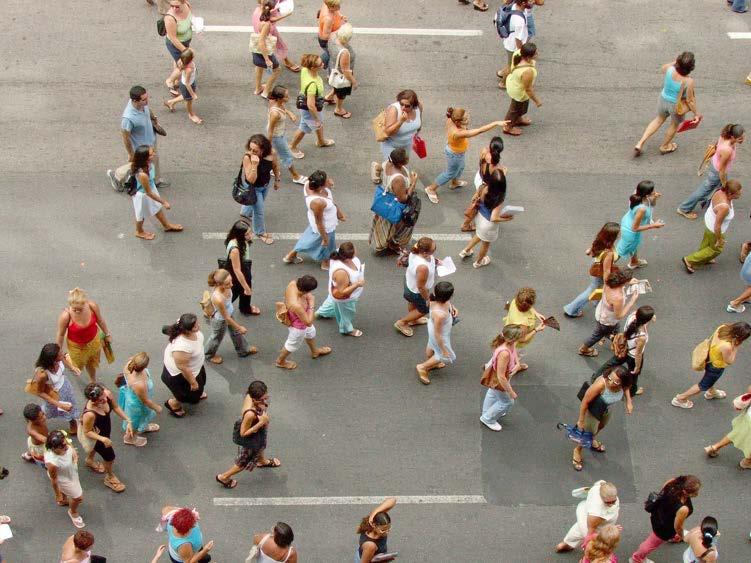
migrant a changemaker. Everywhere, all the time. JULY 2023
Every
Contents
Foreword Acknowledgements
About Ashoka
Executive summary Humans have always been on the move
Methodology
A new lens for people on the move

Changing the story together
Meet the Changemakers
References Further reading
Facts seem to back up this perception. As we write these words in May 2023, over 7 million Venezuelans are living outside their home country, while more than 8 million Ukrainian nationals have left their homes and crossed to other European countries in just over a year. Also, more than 350,000 Sudan nationals have fled the country in only six weeks. Merely a few examples amongst many of large groups of people on the move, often in the millions, throughout every continent in the world. Indeed, migration movements across and within borders are an important trend of our time: an estimated 3.6% of the world’s inhabitants live outside their countries of origin. Although compiling and comparing historical trends is challenging, one thing we are positive about is that the current weight of international migrants has increased in the last decades.
Recent polarization of migration debates alerts us to the need to better understand and tell the story of people on the move as a complex phenomenon. On the one hand, we know movement has been part of human experience since the beginning of civilization, and it is a core catalyst of technological and social advancement, producing new networks, languages, cultural practices, and vital innovations for human flourishing. On the other hand, uprooting families and communities often involves pain and suffering, and many of these movements are also powerful reminders of the deep inequities that define our world.
At Ashoka, we believe in the power of social innovators to change the world. For forty years, we have identified and supported the world’s best social entrepreneurs – leaders with innovative ideas which can transform broken systems for the better, in fields from health to human rights, education to civic engagement, economic development to care for the planet. One of the key insights we have gathered from this work is the centrality of changemaking as a framework to design solutions. The more people that have the confidence and the tools to create change for the good of all, the better prepared we are to solve increasingly complex social problems.
In the field of people on the move, this insight is even more evident, as we have discovered through this research process and the last 8+ years of work through Hello Europe and Hola América – initiatives that are now joining forces to create Hello World. We know that people on the move are changemakers, eager to contribute to their new communities. When this reality is acknowledged and integrated into initiatives’ design and societal perspectives, the effectiveness and power of transformation increases exponentially. Furthermore, successful solutions also activate host communities as changemakers, releasing them to intentionally welcome and work with newcomers for collaborative solutions. Indeed, as we galvanize the power of changemaking in migration, we can only imagine the new and powerful collaborative solutions that might emerge. This will create powerful impact not only for migration related issues, but also for many other urgent challenges facing our
world.
This perspective, of course, is not always at the forefront of conversations on migration and refugee movements. Indeed, we’re at an important crossroads: we either allow the divisive perspective on migration to exacerbate globally, or we forge a different path – one in which people on the move are understood in their full complexity, and valued in their unique contributions to the problems societies are facing. This vision – a world in which every person on the move is seen as a changemaker – is what guides and inspires this publication and the dozens of changemakers portrayed in it.
We hope every reader is inspired to seek this changemaking in their organization and sector, and to work to recognize and support it. Unlocking this power in every individual is the only way to enable the kind of world we need, where solutions outrun problems and seeking the good for all becomes the norm.
ACKNOWLEDGEMENTS

Hello World team
Kenny Clewett
María Mérola
Ella Goncarova
Marianny Pacheco
María Molina Changemakers
Hector Moyeton

team
Arianna De Mario
Belén Cavanagh
Dani Matielo
Samuel Schenk
María Mérola and Kenny Clewett Co-Directors for Ashoka’s
Hello World Initiative
Hello Europe team
Serena Mizzoni
Misza Czerniak
Cigdem Selgur
Federica Baiocchi
Anne Miersch
Laura Batalla
Ibrahem Ahmad
Hola América team
Valentina Valech
Eidi Cruz-Valdivieso
Santiago Mejía
María Fernanda Chaves
Alfonso Barriga
Rosario Cardemil
Saraís Tineo
FOREWORD
“As the world changes at a faster and faster pace, the feeling that people are moving across the world more than ever before –and that this trend needs to be addressed, or at least understood better –is prevalent among diff–erent groups and consti–uencies.”
all the participating
ABOUT ASHOKA
https://www.ashoka.org/
Ashoka is the largest global network of leading social entrepreneurs—individuals with new ideas to systemically address the world’s biggest challenges and the entrepreneurial skill to transform those ideas into national, regional and global social impact. Over 40 years, Ashoka has supported nearly 4,000 social entrepreneurs in more than 90 countries with solutions addressing society’s most pressing issues. Ashoka’s vision is a world in which Everyone is a Changemaker—a society that responds quickly and effectively to challenges, and where each individual has the freedom, confidence and societal support to address any social problem.
ABOUT HELLO WORLD

https://helloworld.ashoka.org/

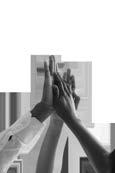
Ashoka’s Hello World team would like to thank Alejandra Rovira Ruiz for providing the design for this report.
We also would like to thank our extended team of teams as well as all the participants of our validation session as critical collaborators on this report.
Agata Stafiej-Bartosik
Alfonso Barriga
Anne Evans
Aron Mehes
Asier Ansorena

Barb Steele
Bill Drayton
Carolina Nieto
Debora Villalobo
Ewa Swierzewska
Federico Mento
Filip Waszczuk
Gloria Pereyra
Hanae Baruchel
Ifeyinwa Egwaoje
Ignacio Sarmiento
Isa Carvalho
Jason Bernhardt-Lanier
Joanna Kucharczyk-Jurgielewicz
Kelly Santos
Konstanze Frischen
Laura Benbenaste
Layla Calomiti
Liliana Agudo
Maira Cabrini
Manmeet Mehta
Marc Carr
María Razquin
Mariana Nakajuni
Marka Varaka
Michael Zakaras
Ovidiu Condurache
Rhea Kewalramani
Sascha Haselmayer
Shafat Khan
Simon Stumpf
Stephanie Schmidt
Tim Scheu
Yeleka Barrett
Zahra Lethome
Since 2015, Ashoka's Hello World initiative has been activating changemaking in the field of migration around the world, starting in Europe and Latin America and spreading globally. We work with changemakers, social innovators, policy makers, opinion leaders and other key partners to change the way we think and act on global migration. With over eight years of experience in analyzing trends and collaborating with key experts and decision-makers in the field, we seek to build a system of solutions and changemakers for migration
06 ABOUT ASHOKA
05 ACKNOWLEDGEMENTS
To
changemakers who shared their insights and experiences with us, thank you!
executive summary
Migration and refugee movements have been present throughout history. However, in the last decade, these movements are happening more suddenly and face new challenges in a world that is undergoing deep, structural changes. Thus, it also requires new responses. Ashoka's Hello World team has devoted over eight years to analyzing trends and working with social entrepreneurs, policy makers, and other key experts and decision-makers in the migration sector across Europe and Latin America.
Through our research we identified patterns across our global network of solutions towards a shared vision for the future, bringing about a new narrative for migration and people on the move. At the core of our process, we engaged and interviewed more than forty key stakeholders in the field, including leading social entrepreneurs, high-level policy decision-makers, leaders of global organizations and foundations, as well as academics and thought leaders. We then organized common patterns into four overarching paradigm shifts and the core system-change principles that support each of these shifts.
Paradigm Shift #1: People on the move are powerful contributors to the good of all
Even in some of the most welcoming environments, the perception of people on the move is generally very disempowering – many are perceived as passive subjects of pity, compassion, or fear. People on the move are powerful changemakers, eager to contribute to the good of all, and the communities they join are active participants in creating spaces for changemaking to thrive.
Paradigm Shift #2: Movement is a shared experience

Everyone is on the move at some point, meaning we are all involved (whether one is in a “welcoming” or “arriving” stage). When movement is recognized as a common reality and an opportunity for change for good rather than a threat, it can spark positive changemaking and deep collaboration.
Paradigm Shift #3: Contributions from people on the move are valuable

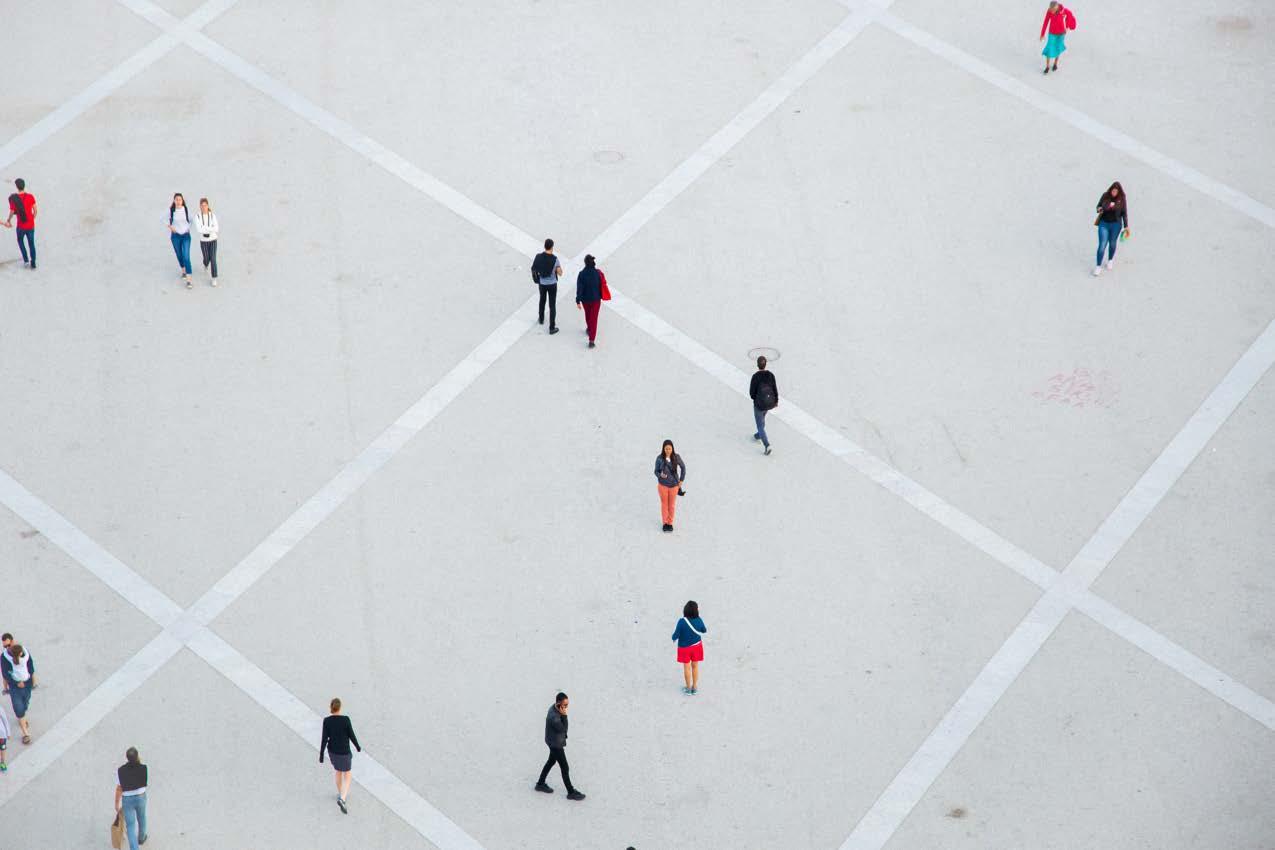


People on the move bring value to society as a whole at many levels. The value created needs to be recognized, and tools and systems need to be developed and scaled by and for people on the move to surface and apply these resources for the good of all.
Paradigm Shift #4: Fluid communities and identities are powerful vehicles for positive change

Human movement happens and is supported by and through communities that are fluid and constantly shifting in purpose, identity, and focus. These communities must be recognized as motors for positive change and given access to tools and opportunities to increase their changemaking potential.
Changing the story together
These pages outline a new framework for how we think about migration through the eyes of social innovators. We invite you to embrace these paradigm shifts and contribute in an intentional way to shape a society that welcomes people on the move as powerful changemakers in their communities.
07 EXECUTIVE SUMMARY 08 EXECUTIVE SUMMARY
How might we shape a society that welcomes people on the move as powerful changemakers in their communities?
HUMANS HAVE ALWAYS BEEN ON THE MOVE


Over the last decade, the number of international migrants has grown consistently, from 221 million people in 2010 to 281 million in 2020, equivalent to 3.6% of the world’s population –compared with 2.8% of the population as of 2000.1 When internal migration is considered, one-seventh of the world’s inhabitants are estimated to have migrated at least once in their lives.2
Multiple factors, such as economic hardship, climate change, conflict and political instability are forcing millions of people to leave their homes. Indeed, the diversity and unpredictability of migration is increasingly being reflected in conferences and central strategies of global organizations, forums, and decision-making organisms. For example, the Global Risks Perception Summit, run by the World Economic Forum, ranks “involuntary migration” as a top long-term concern.3
The challenge's scale has put significant pressure on existing international frameworks for migration and refugee protection, such as the 1951 Refugee Convention and 1967 Protocol. This pressure is compounded by fractures within the international community and national interest postures that risk limiting global capacity to address this challenge.
From a social and political point of view, the current dominating narrative portrays refugees and migrants (especially those seeking better economic or safety conditions) as passive subjects in need of pity and compassion from another society in a better condition.4 On the flipside, this narrative also puts the main weight of the solution on public policy and politics, thus making many citizens in receiving communities also feel like passive subjects of public policy, with little room to give opinions or exercise their agency to intentionally welcome new members of their community. This framework is failing both people on the move and those who receive them: we need new, innovative and systemic responses ideally led by the people most impacted by them.
For decades, social entrepreneurs have been working to identify and solve some of these huge challenges. Ashoka has directly supported over 200 Ashoka Fellows working on issues related to people on the move, and more than 500 social entrepreneurs within our network serve migrants and refugees as a main community. There are powerful solutions out there that touch on all the phases in migration: addressing the push factors (environmental and human causes), serving and empowering migrants on the journey, enabling intentional welcoming and changemaking in destination communities, and working on legal and political frameworks.
Beyond selecting and amplifying the work of these change leaders and their solutions, for over eight years our network has allowed Ashoka's Hello World initiative to analyze trends and build a system of solutions and changemakers for migration by engaging social entrepreneurs, policy makers, and other key experts and decision makers in the sector across Europe and Latin America.
This report suggests a re-framing of how we think about people on the move and the communities that welcome them. Based on the collective experience and knowledge of leading changemakers around the world, and unapologetically focused on the opportunities that emerge from movement, it aims to be a shared vision of what could be when changemaking is activated in the sector.
Migrants of all kinds, asylum seekers, refugees, economic migrants and people with other situations that have led them to move in a temporary or long-term way across borders (within or across countries).

11 HUMANS HAVE ALWAYS BEEN ON THE MOVE
From a regional grassroots movement to a collective global effort
People on the move.
METHODOLOGY
Building on Ashoka Hello World’s experience of eight years working with social innovators in the field of migration in Europe (Hello Europe) and Latin America (Hola América), in September 2022 we began a five-step journey to learn from leading innovators and experts in the field. Through our research we set out to identify patterns across our global
Framing the field 1.
Ashoka's Discovery Framework process begins with literature research to map the biggest issues within the field — as well as its most recent developments. Based on our findings, we collectively develop a single framing question that showcases an inspiring vision for the future and allows us to identify changemakers and solutions that are working towards that end.
Curate solutions 3.
Through our framing question we interviewed 19 Ashoka Fellows with the most relevant solutions representing diverse geographies, subfields, ages groups and identities. We then complemented their solutions with knowledge and experiences from a select group of experts in the field and other social innovators from Ashoka's network. We made sure a large percentage of those interviewed had lived experience as people on the move, given the proven effectiveness of proximate leadership, and especially in such a unique field of work.5
Build the framework 5.
After we identified common patterns for the biggest issues in the field, as well as emerging solutions, these patterns were then organized into four overarching paradigm shifts. These shifts aim to enable an Everyone a Changemaker world in this sector, and the core
network towards a shared vision for the future, bringing about a new narrative for migration.
At the core of our process, we engaged and interviewed more than forty thought leaders in the field, including Ashoka Fellows, social innovators, young changemakers, policymakers and experts.
Research solutions 2.
We sifted through Ashoka's network of over 3,700 Ashoka Fellows and their solutions to identify global ventures that best align with the field of migration and our framing question criteria. Their solutions are the starting point for our work given the rigorous search and selection process each of them has been part of when joining our network.
Pattern recognition 4.
We then analyzed interviews, clustered insights and identified cross-cutting patterns that were present throughout their experiences. These patterns offer us new ways to examine the field of migration, as well as to identify core elements of innovative and successful models for impact.
How might we shape a society that welcomes people on the move as powerful changemakers in their communities?
19
Ashoka Fellows
Through interviews with Ashoka Fellows, we focused on gaining a deeper understanding of successful system level solutions while also exploring together how they articulate an inspiring vision for the future. Through their work, all the Ashoka Fellows we interviewed are showing us today what the future could look like in an Everyone a Changemaker world.
13
Field Experts
Funders, Policymakers and Academics play an important role in defining the narrative around migration. By interviewing these field experts chosen for their experience, we sought to gain insight into historical trends and factors in the field, knowledge of current drivers of change, and their perspectives about key partners and influencers for their decisions.
09
Social Innovators
For over 40 years, Ashoka has built and nurtured the largest network of leading social entrepreneurs in the world. Every Ashoka Fellow goes through a rigorous selection process and is provided with life-long support through our Fellowship, where every member role models and dedicates every day to champion new ideas and solutions for societal change. Ashoka Fellows actively participate and engage with the network partnering with Ashoka to bring about an Everyone a Changemaker world.
Social Entrepreneurs lead the way to an Everyone a Changemaker world
system-change design principles that support these shifts. This report presents our findings by following the same structure.
We spoke with social innovators who showed us concrete ways to address the most pressing issues in their local communities. Many of these social innovators have been part of accelerator programs and convenings hosted by Hello Europe and Hola América in recent years, which allows us to reflect on the impact of the initiative so far as well as potential paths forward for the global movement.
In a world of rapid change and increased social and environmental challenges, leading social entrepreneurs toconstantly identify new principles that can enable everyone to thrive while also showcasing concrete examples of working solutions. By researching and analyzing common patterns across the work of Ashoka Fellows - such as types of solutions, strategies, topic areas, etc.- we identified the sectors ripe for global social change. Our constant collaboration and learning from leading changemakers informs Ashoka's vision and strategy to create a world where solutions outrun problems, and everyone has the capacity and opportunities to contribute to positive social change.
A NEW LENS FOR PEOPLE ON THE MOVE


About this framework
Grounded in the work of Ashoka Fellows and supported with insights from key experts in the sector, our framework looks at the field of people on the move through the lens of social innovation and social entrepreneurship and aims to create a roadmap for collaborative action in the field.
While we recognize that migration can be caused by several systemic challenges across many different geographies and for a variety of reasons, humanity has always been on the move. As such,

this framework focuses on people on the move's role in contributing to social and environmental change for the good of all. We have identified paradigm shifts that recognize and honor the lived experiences from individuals and communities across the world, particularly those in the Global South. These insights are a powerful invitation to explore how you can embody each of these shifts and contribute in an intentional way that is unique to you, your role, and your organization's purpose.
Even in some of the most welcoming environments, the perception of people on the move is generally very disempowering – many are perceived by society as passive subjects of pity, compassion, or fear. Further, the communities that receive them often feel like passive subjects of public policy decisions or uncontrollable circumstances. This feeling of lack of agency can lead to resentment and anger on the one hand, and a sense of dependency on institutional structures on the other.

This must change so that people on the move are seen as powerful changemakers, eager to contribute to the good of all, and the communities that they join also become active participants in creating thriving spaces for changemaking. By shifting this narrative, opportunities will increasingly emerge for people on the move to view themselves as active contributors, and also for the members of the communities they join to understand their personal role in welcoming people. This will unlock massive potential for changemaking and innovation in communities that welcome people on the move. Spaces will be created where everyone can contribute as important participants and leaders for change.
In a way, this is an exercise of recognition of what is: people on the move have high levels of entrepreneurship and changemaking, for a host or reasons, including the experience of moving. This helps develop skills connected to changemaking. A similar phenomenon happens in communities that welcome migrants: creativity, innovation and entrepreneurship emerge as neighbors find ways to support each other. However, there are barriers to that changemaking, such as policies that do not allow newcomers to work or participate actively in society for an extended period as they wait on paperwork, or regulations that limit neighbors from providing care or connecting with newcomers in a significant way. These need to be lowered and new structures must emerge in which unlocking changemaking is the guiding principle.
"When you say you are a refugee, people look at you as homeless, and that everything needs to be provided for you. This is the mindset that needs to change. Sometimes host communities see refugees or people on the move as an obstruction. Refugees are contributors, not an obstruction to the economy."
- Benson Wereje, Founder of CIYOTA, Ashoka Fellow
17 A NEW LENS FOR PEOPLE ON THE MOVE
People on the move, and the communities that welcome them, are seen as powerful contributors to the good of all
Paradigm Shift #1
HOW THIS SHIFT HAPPENS

and culture can provide opportunities for exploring creativity and leadership. Success through education can support changing mindsets in the academic environment of their new community. It is possible to recover agency through creating opportunities to lead and support other migrants and refugees (for example, as peer counselors or mentors), to create their own initiatives and access resources for entrepreneurship. Ultimately, role models in all different fields can create a ripple effect that inspires others to find hope and self-confidence.

When we talk about access to changemaking opportunities, we tend to think about entrepreneurship as the best option, but opportunities and tools must respond to the context-specific needs of the community. Depending on the stage of their journey, this could mean tools to intentionally welcome people such as financial literacy, creating safe spaces for learning and self-expression, enabling them to teach their skills to others or accelerating attainment of meaningful and sustainable employment.
Entrepreneurship can also be a tool used not only to support migrant background changemakers but also to channel investment into underserved and underinvested communities overall. With communication and storytelling tools, we can showcase success stories of improved livelihoods as well as systemic solutions, demonstrating that there are opportunities and open doors in every context.

With ReDI School, Anna Kjær Bathel is bringing together a community of business leaders, IT professionals, and migrants to co-create a new integration process that fosters intercultural exchange, learning, and understanding. ReDI school is creating economic opportunities for refugees and building the necessary mindset for companies and society to acknowledge cultural diversity as a resource. One of the keys to ReDI School’s success is involving employees from migrant background in companies to take on roles of teaching skills, mentoring new students, and bridging cultural gaps between students and companies looking for employees.


20 A NEW LENS FOR PEOPLE ON THE MOVE
Changemaking tools and opportunities should be developed by and made available to all migrants and the communities that welcome them
a.
Ashoka Fellow Ashoka Fellow
Fellow Example: Samar Dudin
Fellow Example: Anna Kjær Bathel
Shifting mindsets in how society perceives people on the move

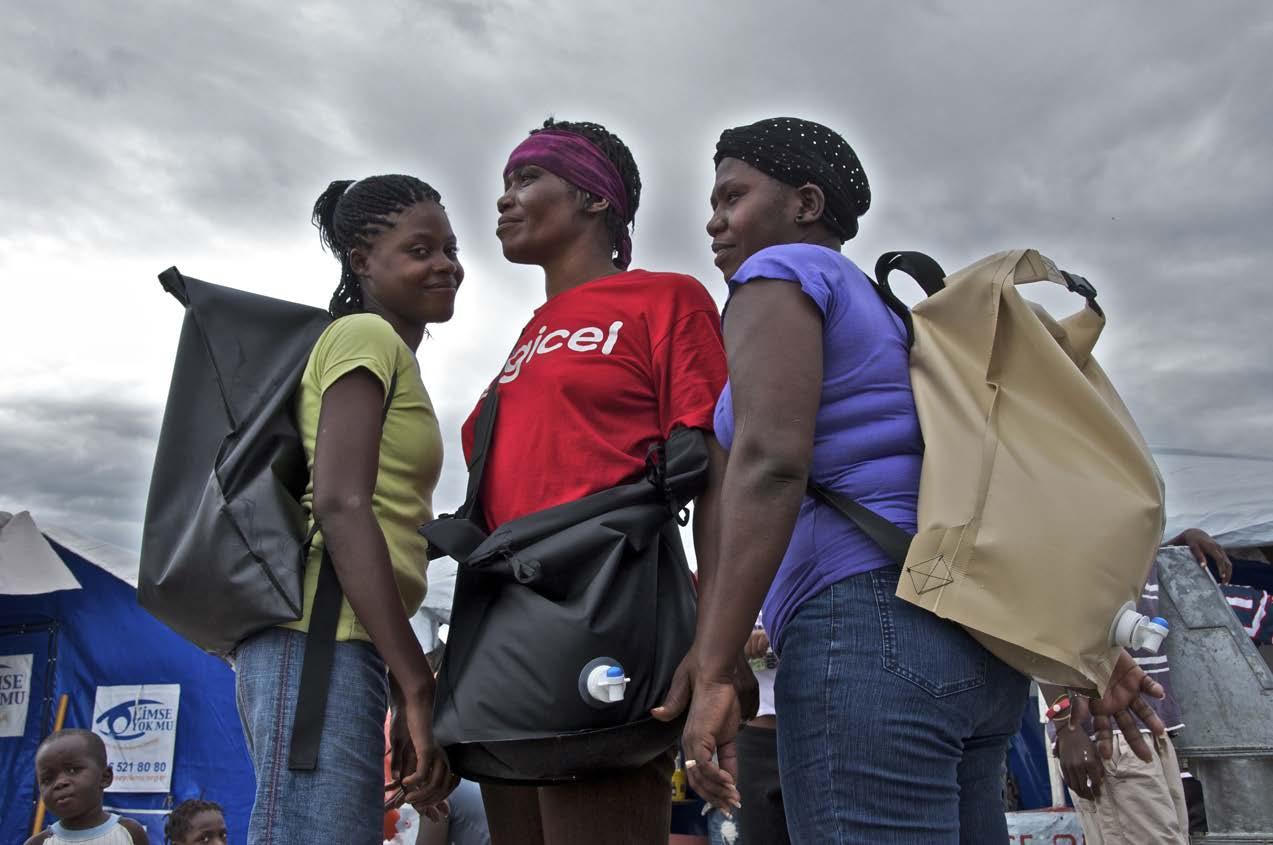
Changing society's perception of people on the move requires moving away from us versus them politics and breaking through feelings of fear and uncertainty on all sides. Through empathy and highlighting stories of collaboration between people on the move as well as locals, we can understand that we should not look at migration as competition, and that we all have special talents and contributions that bring value to the community.
Storytelling is essential, particularly through media and arts, and, more so creating opportuni ties for people on the move to tell their own stories. Providing a more visceral, personal expe rience into the lives of people on the move was highlighted as a successful path to changing mindsets and opinions around migration. For example, every human being can relate to seeking protection from persecution and the more the public can experience this connection the faster this mindset shift will occur.
Fellow Example: Benson Wereje
Through CIYOTA, Benson Wereje seeks to empower young refugee populations in the conflict-prone Democratic Republic of Congo to become agents of peace ful change by providing them with entrepreneurial education and leadership trai ning. Essential to his work is the creation of positive perceptions of marginalized groups and encouraging recognition of their ability to manufacture social change. Benson’s target is to reach 1 million young people in the region who will then drive a non-violent movement to build peace and restore the social-economic fabric that binds together the region’s different ethnic groups.

21 A NEW LENS FOR PEOPLE ON THE MOVE
Ashoka Fellow
Movement is recognized as a shared experience and an opportunity for positive change
Mobility should be understood not only as crossing borders, but also as internal mobility, something very natural and very human. This allows for more people to see their role as part of movement, including those who may not be traditionally considered “migrants” like those who have gone and returned, those that are leaving temporarily, expats, and many more.
Movement has been present throughout human existence: it’s the norm, not the exception. Everyone is on the move at some point, and we are all involved whether one is in a “welcoming”, a “sending”, or an “arriving” stage. At a geopolitical


level, borders are created, moved and dissolved while some countries might one day be requiring support welcoming their citizens and later be in a situation to welcome people on the move. At the individual level, we all have been on the move throughout our life, changing neighborhoods, schools, universities, cities, countries, etc.
If this is appreciated, empathy increases and communities begin to intentionally welcome and appreciate others. When movement is recognized as a common reality and opportunity for change for good rather than a threat, it can spark positive changemaking and deep collaboration.
HOW THIS SHIFT HAPPENS
Developing empathy skills and shared narratives in communities connected to movement
Tapping into individual empathy is an essential building block to shifting the existing narrative around movement from something that should be fought against to embracing it as a shared experience and opportunity for change. Changing and carefully selecting the language used to communicate a more inclusive narrative (for example, PorCausa's “life begins with migration” campaign in Spain) is one of the preferred strategies used by social entrepreneurs in the field, integrating different groups and working to eliminate the us versus them mentality.
Another successful strategy rooted in empathy has been to shift the focus from geopolitics and larger groups to providing a narrative centered on the individual lived experiences of different groups. In some cases, framing people on the move in the context of hardworking individuals seeking opportunities and fair wages can often make the situation more relatable for certain groups as well as connecting them with the journey of an individual through storytelling or art.
Fellow Example: Christina Fialho
Christina Fialho co-founded Freedom for Immigrants, formerly Community Initiatives for Visiting Immigrants in Confinement (CIVIC), to abolish immigration detention. As the co-founder/executive director of Freedom for Immigrants (2010 – 2021), she built and fostered a lasting national visitation movement that has helped bring immigration detention into the public light and helped to secure landmark detention abolition laws.

23 A NEW LENS FOR PEOPLE ON THE MOVE
“All of human society has always been on the move. Then during recent decades, barriers were put in.
24 A NEW LENS FOR PEOPLE ON THE MOVE ” Paradigm Shift #2
-Dawn Chatty, Emerita Professor of Anthropology and Forced Migration; Former Director of the Refugee Studies Centre at Oxford University
Ashoka Fellow
Policy and programming also need to evolve as they adopt new models embracing human movement. Some of the changes that would reflect this new approach include thinking holistically about the history of migration of a community along with the current context, recognizing family reunification as an essential component in migration legislation, and consider how to connect migration of different groups as well as species.
Fellow
Some of the system change strategies identified by social entrepreneurs that can be used to achieve this shift are strategic advocacy, and centering policy and program development around the lived experience of people on the move. In some countries, this approach has also been combined with more inclusive language: for example, shifting language used when advocating for policy to focus not on migrants but on benefiting an entire country's or company's workforce.
- Scott Stiles, Fair Employment Agency, Ashoka Fellow



HOW THIS SHIFT HAPPENS
Reporting systems failures, abuses, and corrupt practices

As director of research at PorCausa, a nonprofit dedicated to research on migration, Gonzalo Fanjul has created a new model of media influence in Europe, that improves media quality by providing outlets with diverse, research-based and representative content. Their goal is to encourage a more informed public debate by influencing media outlets and policymakers worldwide to cover social issues in a new way, fight destructive myths and to make public and private sectors accountable for their decisions.
Systems, policies and procedures are usually the deeply complex result of compromises made to prioritize management of emerging situations and being able to respond to the majority of expected cases. In many cases, this has led to people on the move being considered inefficiencies or exceptions to existing processes, which leaves them exposed to experiencing systems failures, abuses, and corrupt practices. When we actively engage with people on the move in long-term collaboration, they emerge as
potent agents in identifying system failures. Drawing from their firsthand experiences, people on the move possess the capacity to profoundly influence and reshape existing processes. Their immense resilience, skillfulness, and creativity often position them as formidable leaders, spearheading the transformation and enhancement of these practices. Many of them have already embarked on this journey, and with appropriate support, their efforts can extensively benefit society.
People on the move bring value to society as a whole at many levels – through connections made throughout the journey, the exchange of services and products, abusive or corrupt situations they observe and can report on, different kinds of knowledge while crossing borders and interacting, and new perspectives that emerge. However, the knowledge, insights and resources that they create is mostly lost throughout the process. People on the move and their experiences tend to be seen as frictions and inefficiencies, treated as exceptions in a system that
wasn't designed to put people's lived experiences at the center. In some cases, these systems are actively designed to work against people on the move. This must change: the value they create needs to be recognized, and tools and systems developed and scaled by and for people on the move, organizing this value and leveraging it for the good of all. As everyone begins to understand through their experiences how people on the move are key contributors to the community, we will collectively be able to change this perception.
Maria Teresa Ronderos is a journalist, director, and co-founder of the Latin American Center for Investigative Journalism (CLIP), which empowers journalists to collaborate beyond borders and more effectively hold large, transnational powers to account. She promotes stories and journalistic investigations showing the reality of people on the move through journalism stories. In 2020, CLIP published Migrants from Another World, joining forces with 18 media outlets to reveal for the first time the migration experiences of Asian and African people through the continent heading north, denouncing human trafficking and indolent policies in place.

25 A NEW LENS FOR PEOPLE ON THE MOVE
New policy models that acknowledge and connect different kinds of movement
26 A NEW LENS FOR PEOPLE ON THE MOVE
Knowledge, insights and resources created by people on the move and their communities are recognized as valuable for societal good
“ We need to make jobs that benefit from migrant labor less faceless. High volumes of immigrants working in elder care, for example, might shift opinions in favor of policy reform.
”
Paradigm Shift #3
Ashoka Fellow
Ashoka Fellow
Fellow Example: Maria Teresa Ronderos
Example: Gonzalo Fanjul
Bringing needed skills and economic value
One of the biggest perceived obstacles identified during our interview process was the consistent narrative and biased perception about people on the move “taking jobs” from the community or shifting local culture in negative ways. In reality, people on the move are usually skilled, hardworking individuals (and communities) seeking economic opportunity and fair wages. Many organizations are doing important work in connecting this talent with employment and entrepreneurial opportunities, helping people on the move find more quickly the right place to apply their talents and skills. Additionally, they recognize the vital need to bring the reality of migrants’ contribution in skills and economic value to light, both by
Fellow Example: Scott Stiles
showing data as well as telling stories. This is essential to change the false perception of people on the move as a burden. Some of the most impactful solutions are currently focused on shifting this perception by also changing the conversation and language used towards more inclusive language (such as workforce or diverse backgrounds), eliminating the divide between people on the move and the communities that welcome them. Many solutions also bridge this divide by sharing personal stories demonstrating the many ways in which migration supports the economy, with thousands of businesses being positively impacted.6
uniquely position people on the move to identify issues and dream up potential solutions and contributions. At its core, innovation requires
diversity and inclusion and showcases a path that can be followed to highlight the role and contributions of people on the move to society.
Fellow Example: Alou Keita

Inspired by his experiences living in a small town in Tunisia as a student on a tight budget at an agricultural college, Alou Keita has created one of Mali's most successful community-managed village banking networks, providing savings, credit and banking facilities for village communities. One of Alou's key innovations is a money transfer service for those living abroad which offers an effective response to the challenge of sending money home to remote villages. Thanks to the commercial loans the banks give out, many shops, women’s cooperatives and small businesses were established.
Scott Stiles aims to end debt bondage and forced labor of migrant workers throughout Asia by making exploitative recruitment unprofitable. The organization he co-founded, the Fair Employment Foundation, is working to disrupt the migrant domestic worker recruitment system in Hong Kong and other migrant work industries across Asia by shifting the conduct of the hiring process. The Fair Employment Model shifts to an ‘employer-pays’ model that eradicates fees to workers and re-aligns incentives at each link along the recruitment chain.
Creating insights and innovation by identifying new issues and potential solutions



While some programs tend to focus on providing services and training as a means for impact, our interviewees mentioned that this learning needs to happen in both directions. Indeed, often there are types of wisdom that communities of people on the move bring across borders that are vitally needed in their new communities. Investing in changemaking, innovation and entrepreneurship has become an increasingly important tool used
by many different organizations to shift perceptions from scarcity to opportunity.

People on the move are extremely entrepreneurial. In fact, it is a firm conclusion of the literature that migrants (including refugees) have higher propensities for entrepreneurship than the general population.7 A diverse background, resilience in uncertain conditions, and exposure to different ideas are some of the situations that
Cities and communities benefit greatly from welcoming people on the move. They see value in migration as it can contribute to revitalize neighborhoods, create new connections that can lead to unlocking additional resources, as well as activate intersectional community spaces from diaspora groups and many other levels of identity.
Fellow Example: David Lubell
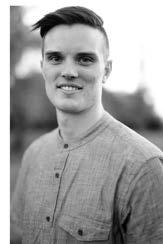
People on the move can mobilize resources and connections globally, build bridges and source opportunities through their social capital. By connecting people on the move with cities and communities, it is possible to unlock these additional resources and showcase examples of how to lobby for widespread replication and demonstrate how people on the move can contribute to creating additional economic opportunities.
David Lubell founded Welcoming America to unlock the full potential of communities by addressing the fears of U.S. born residents regarding the country’s fastest immigration growth rates since the early 1900s. David’s work is guided by a simple and powerful insight – that immigrant integration will never succeed if the focus is put solely on immigrants themselves. He built a “receiving communities” movement across the United States to address the fears and concerns that native-born Americans often associate with rapid immigrant growth. This has helped communities them understand how and why the U.S. can find pride in upholding traditions of being welcoming, at community and individual levels.
27 A NEW LENS FOR PEOPLE ON THE MOVE
New and ongoing connections throughout the journey that create change and bring new resources
28 A NEW LENS FOR PEOPLE ON THE MOVE
Ashoka Fellow
Ashoka Fellow Ashoka Fellow
Human movement happens and is supported by and through communities that are fluid and constantly shifting in purpose, identity, and focus. For example, diaspora communities that form to support each other for first arrival and later continue to function as strong business and social networks, or intersectional communities that come together to secure rights and protection for oppressed and underrepresented communities. However, communities are rarely considered legitimate change agents, are often disconnected, and sometimes even at odds with each other.
Indeed, people on the move have a very important role in building bridges and connections between societies and cultures. These bridges become fundamental to our modern society, as transnationalist scholars such as Linda Basch have argued: migrants “develop new spheres of experience and new fields of social relations. In their daily activities transmigrants connect nation-states and then live in a world shaped by
the interconnections that they themselves have forged.”8

However, current frameworks often force migrants into a false dichotomy in choosing one single identity or community, rather than recognizing the multiple and constantly reshaping identities and communities they hold. Furthermore, migration systems like visa regulating bodies, policy rules for borders, or work regulations are not designed to serve or work with communities, further diminishing their ability to contribute to positive change. These communities must be recognized as motors for positive change, connected with one another for common good objectives, and given access to tools and opportunities to increase their changemaking potential. They can be quickly mobilized, activated for massive resource generation, and deliver impressive results.
Acknowledging identities and forging new ones as opportunities to build bridges and secure rights
It is common to think that when people on the move join a community, they should integrate with the expectation that they would adopt that specific culture or identity. However, these tend to revolve around oversimplified one-dimensional expectations which fail to represent the true diversity and depth that everyone has to offer and that is already present in these communities.
Once we recognize that identities can work fluidly across multiple levels, it becomes easier for different members within and across communities to discover common ground based on culture, origin and interests. Since we all have multiple personal identities, we can relate more easily with each other through intersectional communities that transcend the traditional understanding of fixed physical communities.
Tina Liamzon is building a global community of empowered Filipino migrant workers through a leadership and education program that encourages them to become drivers of change in the Philippines or in their host countries. Completely volunteer-run, the LSE program merges the resources of the Filipino diaspora, academic institutions and the local Philippine embassy or consulate and overseas labor offices. Tina’s work strengthens Filipino identity without excluding others, and gives members of the diaspora the tools to bring positive change to the communities they’re involved in.
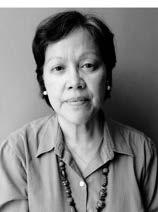
Recognizing communities that have been excluded and enable their positive contributions

There are many groups that have been consistently excluded from decision-making opportunities or perceived as passive subjects of policy, such as Roma and Sinti or Muslim women across Europe. By enabling these communities to tell their own story and access decision-making spaces on their terms, we can identify new approaches benefitting from these diverse points of view to produce methodologies and insights for society at large.
By focusing on the community aspect and making sure that everyone can contribute, powerful proximate leaders tend to emerge, becoming positive role models for all and releasing changemaking power within communities in ways that external agents cannot achieve. If this is valued and supported, it can also create a positive cycle, encouraging wider participation and contribution towards the common good of the community and beyond.
29 A NEW LENS FOR PEOPLE ON THE MOVE
People on the move cultivate fluid identities and communities as vehicles for change, sometimes spanning multiple geographies
30 A NEW LENS FOR PEOPLE ON THE MOVE
“Communities also need to be redefined in some senses: not just physical, individuals are parts of communities no matter where they are, or how they feel.
- Tony Joy, Founder of Durian, Ashoka Fellow
Paradigm Shift #4
”
Ashoka Fellow
Fellow Example: Tina Liamzon
HOW THIS SHIFT HAPPENS
Fellow Example: Sarah Zouak
Sarah Zouak, Ashoka Fellow in France, wants to give all Muslim women a chance to reach self-fulfillment and live peacefully with their multiple identities without being told, by their community or society, what they should chose, be or do. Her organization Lallab is a unique, inclusive, and safe space enabling her to build a strong community of diverse women eager to learn from each other, regardless of their social background, educational level, relation to religion/faith or type of challenges they face.

Galvanizing changemaking skills and training within communities shaped by people on the move


Communities can consistently be a powerful tool to achieve widespread positive change. Whether we think of them as families, affinity groups, neighborhoods or networks of people or organizations, they can provide an umbrella for support, engagement, and create dynamic spaces for changemaking. By activating these communities as powerful vehicles for chang we can also enable a

long-term transformation that multiplies its impact with every new generation. For example, families can build leadership within the community set up and become role models for themselves and others or diaspora groups can grow in engagement and support every new generation as they settle. Their impact will likely be twofold or more as it will reach both the society where they live as well as their community of origin.
Fellow Example: Edward Edilbi

Through his organization Dubarah, Edward Edilbi is introducing a new way to empower, integrate, and build social capital in scattered immigrant populations. Using diaspora networks in 36 different countries that have large communities of Syrian refugees, Dubarah enables refugees to play an active role in their communities, changing their status from helplessness to independence and promoting positive perceptions of refugees.

31 A NEW LENS FOR PEOPLE ON THE MOVE
Ashoka Fellow
Ashoka Fellow
Changing the story together



Collectively adopting a new lens for people on the move, where we see and engage them as powerful contributors, is a complex task. Each of the elements presented throughout this report is only one of the pieces that must come together for a deep transformation. The vision is big, requiring major shifts, and it often can be seen as overwhelming and idealistic. But this is not merely a theoretical model, it is based on very specific proven solutions, led by changemakers in many different fields, that show us the way forward. Progress on this vision requires collaboration from all. By bringing diverse stakeholders together, change can be realized.
There is an urgent need to infuse new energy into the sector. Numerous International leaders, initiatives and global agendas are pointing to migration as one of their top priorities. For many, it is framed as an opportunity for economic development. For example, in April 2023, the World Bank published its annual World Development Report centered on the topic of Migrants, Refugees and Societies,9 highlighting the role of people on the move in economic development and proposing a framework for policy makers to effectively manage migration movements.
But we must go broader. We believe it is essential to embrace a new narrative with people on the move and the communities they join as powerful contributors to positive social change, including bringing essential solutions to the most pressing challenges we face as a society. The way we see and involve people on the move needs to shift in order for this contribution to happen at the needed scale. If we don’t fix this framework now, we will continue to build on something broken.

Hello World's approach to change this narrative and build a world where every person on the move is seen as a changemaker follows two general guiding principles, to find and support changemakers, and to bring together key stakeholders to find and develop solutions collabora-
tively.
Our strategy developed over 8 years stands on three pillars:
Expanding the system of solutions. Identifying changemakers and social entrepre neurs in the sector and connecting them in a global network to advance their work and access potential investors and replicators. ( Accelerator and Changemaker Maps in America
https://holaamerica.org/mapeo-2023/
https://www.hello-europe.eu/transforming-the-field-through-collaboration
https://www.hello-europe.eu/transforming-the-field-through-collaboration
https://www.hello-europe.eu/transforming-the-field-through-collaboration
Enabling deeper impact in the ecosystem. Supporting system-changing new ideas from social entrepreneurs and provide them with funding and life-long support. Accelerating their impact by nurturing ecosystems of strategic stakeholders around them. (See the solutions our Fellows are providing in the descriptions below, and initiatives such as our Ecosystem Accelera tor)
https://www.hello-europe.eu/transforming-the-field-through-collaboration
https://www.hello-europe.eu/transforming-the-field-through-collaboration
https://holaamerica.org/narrativas-2/
https://holaamerica.org/narrativas-2/
Changing the narrative for people on the move. Influencing policy at pan-continental levels ( our policy work in Latin America and Europe and partnering with storytellers (see our Hac keando Narrativas series) to shape the way society thinks and talks about migration.
Our aim is not to do this on our own, but rather to invite and join other organizations and change leaders to unlock changemaking at a massive scale in the sector. Indeed, embracing this vision requires every person and organization to play a role and take action within their spheres of influence. Social entrepreneurs, changemakers of all kinds, funders and foundations, thought leaders, policy makers and business leaders need to work together to shape a society that welco mes people on the move as powerful change makers in their communities.
It all starts with appreciating that all people on the move are changemakers, everywhere, all the time. If we get this right, everything else will fall in place.
more effective policies and provide better support for refugees. Such collaborations help to bridge the gap between academia and policy, leading to more informed policies that are sensitive to the complex realities of refugees.”
-Yafa Shanneik, Visiting Professor of Islamic Studies at Lund University,
Sweden
Get
Contact María Mérola at mmerola@ashoka.org
Contact Kenny Clewett at kclewett@ashoka.org
Visit our website at: https://helloworld.ashoka.org/
35 CHANGING THE STORY TOGETHER
“Complex life experiences of refugees can only be understood if collaborations and partnerships are formed between various fields of work, including academia, social work, the judicial system and government sectors. By integrating research outcomes from these diverse fields, it becomes possible to develop
”
in touch with Hello World!
MEET THE CHANGEMAKERS


Africa




Alou Keita PASECA, Mali
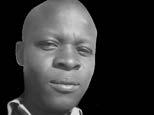

Benson Wereje CIYOTA, Uganda
René Marie Christoph Ouedraogo
Ferme Agro-Pastoral Wendnongodo, Burkina Faso
Tony Joy Durian, Nigeria
One of the most universal and pressing issues facing immigrant communities worldwide is the need to transfer money to dependents abroad. Alou Keita has devised practical solutions to common difficulties with the process in creating one of the most successful community managed village banking networks in Mali. Alou's banks (officially known as village finance offices or "caisses") differ from many other microfinance establishments. His Program for Self-managed Savings and Credit Systems (PASECA) preserves traditional elements of village life, such as participatory decision-making through village general assembly meetings and the honor system to aid in loan repayments. One group of village banks, the first of its kind in Mali, is completely run and managed by women. Each bank is adapted to the needs of the particular community after basic training by Alou's organization.
Benson’s new idea is to empower young refugee populations in the conflict-prone Democratic Republic of Congo to become agents of peaceful change by providing them with entrepreneurial education and leadership training. Benson’s target is to reach 1 million youths in the region who will then drive a non-violent movement to build peace, restore the social-economic fabric that binds together the region’s different ethnic groups and ensure long-term stability and economic prosperity. For a region long plagued by war, corruption and plunder of natural resources this initiative offers a new approach that is initiated by and incorporates young people. Benson’s work is a powerful example of the opportunities people on the move create and the changemaking potential they hold.

Réné Christophe has created an alternative that gives families, particularly young people on the move, a strong and easily accessible economic incentive to continue farming in the widening peri-urban rings around major cities. Migration from rural inland areas to the Sahel’s inland cities has created horizontal expansion in the diameter of city footprints. Counterintuitively, this expansion of the urban footprint has created opportunities for small farmers living in the peri-urban area, as population growth has precipitated demand for food and building materials. Réné Christophe gives young itinerant workers the chance to take advantage of these opportunities through an introduction to sustainable agriculture.
Tony Joy, through her organization Durian, is reversing the tide of rural to urban migration by changing the narrative of ‘backwards’ rural communities through creating attractive opportunities to show that people can thrive just as well in rural communities as they can in urban communities. Over the years, many intervention projects targeted at rural women have been designed and implemented, however, these projects have assumed the charity model of giving handouts to the women and do little or nothing to lift the beneficiaries out of poverty. At best, it perpetuates the cycle of dependence which sees the same people receive the same handouts year-in-year-out with little or nothing to show for it. Durian’s work enables people in rural communities to become leaders, regain their agency and engage in products that bring economic and social value, which enables them to see themselves as agents instead of unproductive and incapable of generating productivity at a high level.
 Ashoka Fellow
Ashoka Fellow
Ashoka Fellow
Ashoka Fellow
40 MEET THE CHANGEMAKERS 39 MEET THE CHANGEMAKERS
Ashoka Fellow Ashoka Fellow
Arab world
Abdelfattah Abusrour Al Rowwad, Palestine
Mansour Tunisian Center for Social Entrepreneurship, Tunusia

Edward Edilbi Dubarah, Canada


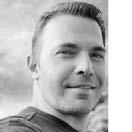
Mustapha Jazzar LASeR , Lebanon




Abdelfattah has pinpointed a relationship between non-violence and healthy self-expression among children living in Palestinian refugee camps and developed venues and practices to build "beautiful resistance". There, children can be separated from the violent and politically charged atmosphere that surrounds them each day. They learn how to use peaceful, cooperative means to release emotions and express their hopes and dreams in an artistic and constructive, rather than violent, manner. Working from a border point—an area of continuous friction between the children and Israeli soldiers—Abdelfattah combats the child soldier phenomenon by creating vocal, empowered, and brave young promoters of non-violent resistance and peace. He is giving the children an opportunity to enjoy their childhood, a basic right many children in the world take for granted.
Asma is creating a new culture and approach for solving social problems in the Arab Maghreb sub-region by introducing to the community, the government and the private sector the concept of social enterprise. As an alternative to government dependency or emigration when facing social problems, Asma is offering communities a third option which empowers them to have an active, innovative role in changing their situations. Through promoting and spreading the concept of social enterprises and supporting a new cadre of social entrepreneurs, she is sowing a culture of entrepreneurship within communities that otherwise might have opted to emigrate.
Edward Edilbi is introducing a new way to empower, integrate and build social capital in scattered immigrant populations that have been affected by a political crisis or natural disaster. Focusing on the current post-conflict Syrian refugee community and diaspora around the world, Edward is creating a complex network of individuals, connected to regional hubs and to each other, who recognize their own capital and talent and have a will to help their peers. Instead of traditional aid to refugee communities that only provide short-term solutions and prolong dependency, Edward’s work creates a cycle of support between diaspora and refugees and fosters long-term empowerment. Using online and offline strategies, he provides real-time support and solutions to connect Syrian refugees with housing, employment, education, legal advice, investment opportunities, emotional support and a cultural understanding of their host country.
Mustapha started the Lebanese Association for Scientific Research (LASeR), to promote research, and later employment opportunities, for graduate students studying pressing societal problems in Lebanon. In addition to empowering the graduates to study, pursue, and solve societal problems, Mustapha aims to change the social dynamics of Lebanese society by challenging the monopoly and centralization of the education system, currently based on religious sectarianism rather than merit. Mustapha’s scalable solution, being implemented currently for Lebanese students and Syrian student refugees living in Lebanon, has created the opportunity for hundreds of the most talented students to focus their graduate studies on systemic solutions to problems in the Levant. Through his initiative, Mustapha has enabled an environment of entrepreneurial education and activity where marginalized youth and refugee populations are encouraged to succeed.
42 MEET THE CHANGEMAKERS 41 MEET THE CHANGEMAKERS
Ashoka Fellow Ashoka Fellow
Asma
Ashoka Fellow Ashoka Fellow
Arab world Asia
Rana Dajani We Love Reading, Jordan

In contexts where reading for pleasure is considered a luxurious act, Dr. Dajani is building a popular culture of reading by facilitating community-run libraries across every neighborhood in the Arab world and beyond. In 2006, based on research about the benefits of reading aloud, Dr. Dajani designed an initiative, “We Love Reading” (WLR) that offers a new practical, cost-efficient, and grassroots approach to foster the love of reading in youth by engaging various stakeholders. By involving kids and youth, their parents, research institutions and countless volunteers, Dr. Dajani has spurred a movement that has proven its ability to develop children’s skills and abilities, improve their relationship with their parents, and provide locals, especially women, with the leadership and entrepreneurial skills to better position them in their respective communities. Her work in the immigration sector involves the incorporation of refugee camps into the WLR program.
Jordan is a land of many ethnic indigenous and immigrant groups, religions and cultural traditions. Samar Dudin acknowledges and disaggregates these to help young people work through their unique problems. Nurturing leaders within each group, she then re-aggregates them to model a new, just, equal society where citizens are able to solve problems and live successfully together. Samar replaces apathy, loss of identity, alienation, and feelings of exclusion among Arab youth with empathy, rights consciousness and a framework for action and social change. What emerges is a new and united cultural identity. Her approach takes distinct care to recognize the fluid communities and identities represented by those she works with. Samar’s comprehensive system allows youth to feel the uniqueness of their identity, be aware of their rights, and find an outlet to implement their gained knowledge and know-how.
Farha Ciciek Tanoker, Indonesia
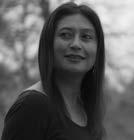
Hasina Kharbhih Impulse NGO Network and Impulse Social Enterprises, India




In Indonesia, where religious conservatism and fundamentalist Islam are on the rise, Farha Ciciek is showing that the betterment of women and people on the move’s role and position in society can be achieved through religious teachings. Farha is successfully introducing interpretations of religious texts that favor women's rights to a massive audience in Indonesia's Islamic boarding schools (pesantren) and the communities that surround them. As a key part of her strategy, Farha works closely with the children of local immigrant communities in an effort to ease the integration process. She maintains that revitalizing community institutions and traditions from their home countries and cultures can build a respectful and inclusive society for all. Together with influential leaders, Farha has established an active network through her organization, the Center for Education and Information on Islam and Women's Rights (RAHIMA) that brings people with progressive views together to strengthen the cause of equality and to improve individual’s daily lives.

Hasina is the founder of hybrid organization and innovation ecosystem composed of two pillars: Impulse NGO Network, which was conceptualized in 1987 and is a significant force against unsafe migration and human trafficking today, and Impulse Social Enterprises which promote a resilient market of local artisans and create sustainable livelihoods that help prevent unsafe migration of climate refugees which often leads to human trafficking. Hasina developed the Impulse Model, a comprehensive strategy in addressing unsafe migration and human trafficking and upliftment of economic livelihood. She has received numerous recognitions, among a few to her name is the 2019 Mother Teresa Award for Social Justice 2019 from Harmony Foundation for relentless and passionate work and ongoing efforts towards freeing the world from Modern Day Slavery practices as well as the Women Transforming India Award (WTI) among the 75 women from across the country who have transformed India marking 75 years of Indian independence. She is presently working towards Journey With Purpose co creating and supporting young change maker’s innovation.

44 MEET THE CHANGEMAKERS 43 MEET THE CHANGEMAKERS
Ashoka Fellow Ashoka Fellow
Samar Dudin Ruwwad, Jordan
Ashoka Fellow Ashoka Fellow
Asia Europe
India




By forming a network of women collectives that enable credit access, livelihood support, andting a platform for women leadership, gender equality, and economic transformation for women across rural districts of North India. Working largely with women who migrated away from cities to seek work, Sanjay seeks to build leadership and changemaking potential. By adding an investment into their education and training their employable skills, he has transformed many in rural India to become catalysts of change.
Scott Stiles aims to end debt bondage and forced labor of migrant workers throughout Asia by making exploitative recruitment unprofitable. He aims to disrupt the migrant domestic worker recruitment system in Hong Kong and other migrant work industries across Asia by building and testing ethical recruitment agency and training center models. Previously, Scott co-founded the Fair Employment Foundation which seeks to make exploitative recruitment unprofitable and realign the incentives of all stakeholders in the recruitment process. The market currently is based on a ‘worker-pays’ model in which migrant workers are charged exorbitant fees by middlemen––sub-agents, pre-migration training centers, employment agencies––in order to facilitate their employment and migration. The Fair Employment Model shifts to an ‘employer-pays’ model that eradicates fees to workers and re-aligns incentives at each link along the recruitment chain.

Tina Liamzon OF-LIFE/ALSE , Philippines
Kjaer Bathel ReDI School of Digital Integration, Germany

Tina Liamzon is building a global community of empowered Filipino migrant workers through a leadership and education program that encourages them to become drivers of change in the Philippines or in their host countries. In many countries around the world Filipinos compose some of the largest migrant worker communities, and in most cases are employed as low-skilled labor despite having relatively high levels of education. Financial challenges in the Philippines force these workers to spend many years separated from their families. These personal and economic challenges lead to low self-esteem and the disempowerment of Overseas Filipino Workers (OFWs). Tina Liamzon realized that the key to long-term impact was to transform the mindset of OFWs from self-pity and low self-esteem to being proactive citizens. She and her husband, and their colleagues in the LSE Migration and Development Consortium, enable them to become part of a larger movement and vision for driving change in their own lives and in their community.

With ReDI School, Anne is bringing together a community of business leaders, IT professionals, and migrants to co-create a new integration process that fosters intercultural exchange, learning, and understanding. Applying the principles of human-centered design, Anne brings together business professionals, companies, and migrants for a free training program for careers in information technology. In this collaborative training model, the ReDI School of Digital Integration, migrants become protagonists in the creation of their own job opportunities. Anne’s work is grounded in the understanding that integration is a two-way process: not only do newcomers get included into another culture, but also the receiving society needs to become open and inclusive in its orientation towards diversity. Recognizing the need for a bottom-up, community-led approach, she has developed an alternative to traditional education and training pathways for refugee integration that enables positive intercultural interaction between migrants and local communities based on common needs and interests.

46 MEET THE CHANGEMAKERS 45 MEET THE CHANGEMAKERS
Anne
Ashoka Fellow
Sanjay Sharma Manjari Foundation,
Scott Stiles Fair Employment Agency, Hong Kong
Ashoka Fellow Ashoka Fellow
Europe
Åsa
and Tina Molund is the Co Worker Engagement
Lead of IKEA Social Entrepreneurship BV. Through partnerships, programs and investment, IKEA Social Entrepreneurship supports social entrepreneurs across the globe, creating new opportunities for people distanced from the labor market and those living in vulnerable communities, while tackling root causes of poverty and inequality. Their team has been finely tuned to identify important, effective, and necessary initiatives especially with the focus of migration.
Professor Dawn Chatty is a social anthropologist at the University of Oxford whose ethnographic interests lie in the Middle East, particularly with nomadic pastoral tribes and refugee young people. Her research interests include a number of forced migration and development issues such as conservation-induced displacement, tribal resettlement, modern technology and social change, gender and development and the impact of prolonged conflict on refugee young people. Dawn is both an academic anthropologist and a practitioner, having carefully developed her career in universities in the United States, Lebanon, Syria and Oman, as well as with a number of development agencies such as the UNDP, UNICEF, FAO and IFAD.

Elisabeth du Parc International Organization for Migration, International
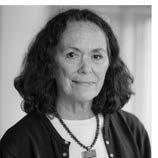


Hane Alrustm Resourcing Refugee Leadership Initiative, Belgium





Elisabeth du Parc is a project manager at the International Organization for Migration (IOM), a member of the United Nations system and one of the leading organizations worldwide in the field of migration. Their work includes the development of policy guidance for the field; the formulation of global strategies; standard-setting and quality control; and knowledge management relating to “mainstream” migration sectors. For her entire career, Elisabeth has worked tirelessly at the frontiers of her field on a diverse portfolio of work from local government assistance to integration reform.
Hane is the Director of Programs at the Resourcing Refugee Leadership Initiative, a refugee-led and managed fundraiser for other refugee led organizations (RLOs). Evidence shows that RLOs are consistently and holistically better prepared to meet the needs of the communities they seek to service. However, RLOs are vastly under resourced, especially relative to their potential to create change. The RRLI’s purpose and mission is to find funding for pointed RLOs, with leadership teams and executive structures composed entirely of individuals from displaced backgrounds. As a person of displacement himself, Hane believes that efficient and effective solutions come from within the communities requiring help. As director of programs, Hane executes the mission of the RRLI.
48 MEET THE CHANGEMAKERS 47 MEET THE CHANGEMAKERS
Skogström Feldt & Tina Molund - IKEA Social Entrepreneurship, Sweden
Dawn Chatty Oxford University, United Kingdom
Europe




Jai Mexis Odyssea , Greece
Jean Guo Konexio , France
Foresti Former Overseas Development Institute, UK
Jai Mexis is an award-winning architect and one of the leading social innovators in Greece. Jai is the Founder of Olon Design Group, a humanitarian architecture company, and Founder and Director of Odyssea, an NGO based in Athens, Greece that focuses on the integration of vulnerable immigrant groups through targeted skill development in the labor market. Since 2016, Jai has raised €1,250,000 for Odyssea and grown the organization to 10 full-time staff and 15 part-time tutors. Jai is also part of NextFab Foundation, with which he maintains a long-term relationship on designing and setting up FabLabs for social innovation in countries around the world. Jai specializes in the intersection of social design and tech for the humanitarian sector.
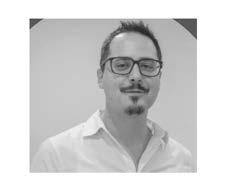
Co-Founder and Executive Director of Konexio, Jean Guo, then a migrant health researcher, realized that with the growing labor market demand for digital skills, bridging the digital divide was key in solving unemployment. Jean, with a dedicated team of educators, IT professionals, and community volunteers, set out to create a streamlined path to employment through digital skills training for disadvantaged people, especially refugees and migrants. Fueled by community demand, these digital skills workshops grew into Konexio, which facilitates the social and professional integration of refugees, migrants, and disadvantaged people through digital skills training. Her organization is now expanding to empower refugee communities globally and has launched pilots in high-needs locations elsewhere in France, as well as internationally in countries such as Malawi.
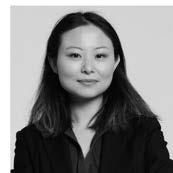
Marta served as Managing Director at the Overseas Development Institute (ODI), an independent think tank, and subsequently was the founding Executive Director of ODI Europe. There she established and led the Human Mobility Initiative, managing the institute's engagement on migration at global, regional and local levels. Most recently, Marta founded Local Action on Global Opportunities (LAGO), a collective of prominent individuals in the field of migration and abroad, working together to address global challenges. In an accomplished career spanning over 30 years, Marta has proven herself to be among the most knowledgeable and effective individuals in the immigration sector.

Michelle is a Lecturer in Technology and Entrepreneurship, Program Director of BSc International Business and a member of the International Business, Strategy and Innovation group (IBSI). Her research interests relate to the sociology of entrepreneurship, refugee entrepreneurship, social inclusion and social enterprise. Michelle’s current research focuses on refugee entrepreneurship and measuring the impact of refugee entrepreneurship programs.

50 MEET THE CHANGEMAKERS 49 MEET THE CHANGEMAKERS
Marta
Michelle Richey
Europe Latin America
Munir Ahmad Aga Khan Foundation, Switzerland





Sofia Appelgren

As Global Innovation Lead at the Aga Khan foundation, Munir Ahmad addresses technological and design challenges to co-create innovative, community driven, and sustainable solutions. A member of the Aga Khan Development Network, the Aga Khan Foundation works closely with local communities across the world to enduringly improve quality of life and expected outcomes. Towards this mission, Munir Ahmad has led his division to develop a number of productive ventures, including the creation of an immigrant settlement program for Syrian refugees in Europe.
Sofia has created a for-profit mentorship program which tackles issues of unemployment and poor integration among young immigrant girls in Sweden. Her program offers professional development and contacts for these young girls, who offer their expertise to companies in return through lectures and focus groups. As Sweden’s corporate hiring processes largely operate on networking, personal relationships, and references, opportunities can prove extremely difficult for immigrants to access. Most live in segregated communities, making access to jobs and services difficult. In immigrant communities, young women face the greatest obstacles to success in the job market. Sofia has launched a program that matches the most dynamic and entrepreneurial young women with Swedish entrepreneurs and corporate leaders.
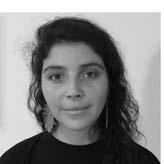
Yafa Shanneik is Visiting Professor of Islamic Studies. Her research focuses on the intersections between Islam, gender, and migration in two regional contexts: Europe and the Middle East. She has a particular interest in transnational Muslim female resistance movements and has conducted extensive ethnographic research in Britain, Germany, Ireland, Jordan, Iran and the Arab Gulf states. Currently, she is working on a project, funded by the British Academy, which examines transnational migration of Syrians and Iraqis particularly focusing on gendered power dynamics due to conflict-induced displacement. Shanneik uses unconventional research approaches in studying migration and displacement experiences including the use of expressionist art through body-mapping as well as new technology including augmented and virtual reality. The aim of her research is to offer new understandings of Muslim female mobilization and political participation by examining the various strategies Muslim women employ to express resistance to existing orders of power.

Gabriela Carrasco 2811 Global, Chile
Gabriela Carrasco is co-founder and director of the 2811, a global platform for social change. An expert in the development of social innovation methodologies, she has worked on topics such as sustainable finance, social entrepreneurship, ecosystem generation, and migration. As a key partner for Hello World, she is currently 2811’s director of the Hola América program with Ashoka and has worked collaboratively with Hello World on several projects. She co-founded the initiative because she is convinced that social and ecological change depends on each of us who inhabit this planet.
52 MEET THE CHANGEMAKERS 51 MEET THE CHANGEMAKERS
Yafa Shanneik
Ashoka Fellow
Latin America
María Teresa Ronderos Center for Investigative Journalism (CLIP), Colombia

Otelo Castillo & Marisol Aguilar Racismo.MX , Mexico
Melde
International Organization for Migration, International




rest, and respect. People on the move often face prejudice and intolerance due to different religious or cultural identities. When newcomers relocate to Brazil, Jonathan Berezovsky and his organization, Migraflix, help to economically empower and integrate them into local society. Migraflix does this by bringing natives and newcomers together through workshops and events offering live music, art, and food, helping locals to embrace their customs and culture.

For more than 35 years, María Teresa Ronderos has been a pathbreaking Colombian investigative journalist, editor, and entrepreneur. Three years ago, she started her most ambitious and far-reaching project yet, as the co-founder of the Latin American Center for Investigative Journalism (CLIP). CLIP leads cross-border collaborative investigations that seek to hold transnational powers to account, whether they be corporations, drug cartels, human traffickers, polluters, or religious institutions.
Otelo Castillo and Marisol Aguilar are depart ment leads at Racismo.MX, an organization dedicated to raising awareness about systemic racism in Mexico. Marisol is Program Coordina tor at Racismo. She is a lawyer from the Univer sidad Iberoamericana and a teacher in Human Rights and International Humanitarian Law from the American University. She has worked in international organizations and civil society in defense of human rights in matters of gender and race. Otelo is the Investigation Lead and Research Coordinator at Racismo.MX. Otelo is a lawyer from the Autonomous University of Yucatan and has a passion for human rights, anti-racism, education, and peace.
GMDAC which aims to provide a one-stop-shop to better understanding of international migration data. She is also a specialist in migration and environment data.


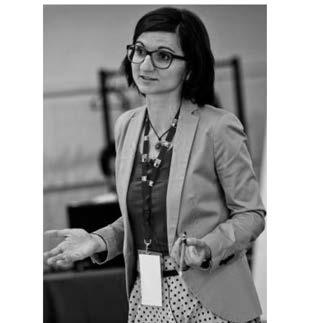
54 MEET THE CHANGEMAKERS 53 MEET THE CHANGEMAKERS
Susanne
Jonathan Berezovsky
Ashoka Fellow
Latin America North America
Tomás Lawrence Fundación Interpreta, Chile
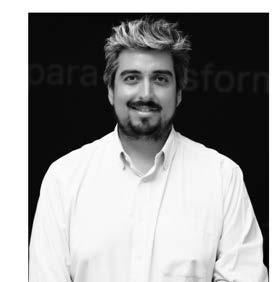
political violence. He is a Public Management Engineer with an advanced research degree in Migration, the prevention of mass atrocities and genocide for indigenous peoples of Latin America, LGBTI people, and migrants. He has studied corruption, impunity, and mass atrocities for the Auschwitz Institute, as well as Human Rights, ICTs and public policies with a focus on Human Rights for the Human Rights Secretariat of the Ministry of Justice and Human Rights of Argentina. In addition, he has participated in the development of a methodology to detect expressions that incite hate on social networks and developed mobile applications to empower migrants and refugees through the delivery of information.
Alice Bosley is the




for
entrepreneurs
Barri Shorey Hilton Foundation, USA
Bayan Khatib Northpine Foundation, Canada
and Executive
Five One Labs helps people who have a business idea to launch their start-ups through intensive business training, mentorship, and more. Five One works closely with displaced and marginalized groups, giving them an opportunity to create a business without the financial consequences of failure. Their community focus ensures that half of the ventures they support are from displaced people. Prior to Five One Labs, Alice spent her career helping innovators and entrepreneurs develop their ideas around the world.
Barri Shorey oversees the Refugees Initiative and Disaster Relief and Recovery program at the Conrad N. Hilton Foundation, working with partners around the world to ensure forcibly displaced populations are able to access educational and economic opportunities, recover from shocks and integrate into the new communities in which they find themselves. Prior to joining the Foundation, Shorey spent 16 years at the International Rescue Committee (IRC) overseeing and implementing programs supporting refugees and displaced populations through the arc of a crisis – providing cash assistance for basic needs during and emergency and improving access to employment, entrepreneurship and financial services in more stable contexts.


Bayan Khatib is Refugee Impact Director at the Northpine Foundation, an investment firm focused on underserved communities in Canada. As a former refugee, Bayan has dedicated her work to empowering people on the move and fostering cross-cultural connections in destination countries. Focusing on asylum seekers, she has used her position at the foundation to ensure that Northpine’s portfolio is oriented towards helping them meet potential challenges.
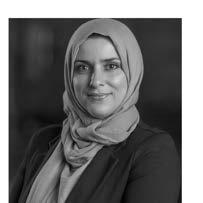
56 MEET THE CHANGEMAKERS 55 MEET THE CHANGEMAKERS
Alice Bosley Five One Labs, USA
co-founder
Director of Five One Labs, a startup incubator
diverse
in Iraq and Colombia.
North America




Gonzalo Mercado National Day Laborer Organization Network (NDLON), USA
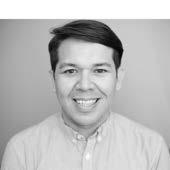
Jina Krause-Vilmar Upwardly Global, USA

Gonzalo is the executive director and founder of La Colmena Community Job Center and the New York coordinator of the National Day Laborer Organizing Network (NDLON). Gonzalo has over ten years of experience collaborating with migrant workers through grassroots organizing, leadership and workforce development. He has been instrumental in the creation of key municipal and statewide initiatives to advance the rights and inclusion of the most vulnerable workers in New York. His leadership of NDLON’s international initiatives has helped people on the move in and outside of the United States maintain steady incomes and integrate themselves in their destination communities.
An expert on refugee and immigrant economic inclusion, Jina Krause-Vilmar has more than 15 years of experience in the for-profit and non-profit sectors combined. As President and CEO of Upwardly Global, a nonprofit that helps immigrants build their careers in destination countries, she oversees workforce operations in the United States and abroad. She also leads their domestic policy & advocacy efforts. Taking over for the organizations’ founder and Ashoka

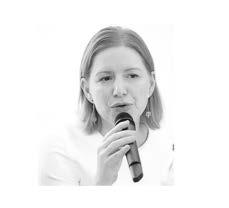
Fellow Jane Leu, Jina has expanded UG’s impact by providing support for a growing number of immigrant and refugee professionals to restart their careers in the United States.
Mary Coulter is currently serving as the interim Deputy Director of the Intergovernmental Con sultations on Migration, Asylum and Refugees (IGC). As a Canadian career diplomat, Mary has over 20 years of extensive experience in diplo matic relations, policy development and migra tion program management. She recently held the position of Counsellor and Migration Program Manager at the Mission of Canada to the European Union in Brussels, Belgium, leading Canada’s diplomatic engagement on migration and refugee protection with the European Union and the Council of Europe. Previously, she managed Canada’s Immigration Program - with regional responsibility - at the Embassy of Canada in Abu Dhabi, United Arab Emirates.
Romy Greenwald
divide: the language barrier. MiSendero integra tes English learners into the school-wide community by facilitating mutual learning experiences for all students. They redefine perceived obstacles for English learners, (i.e. having Spanish as a first language) and create opportunities for these students to use these skills to become Spanish tutors and leaders in their communities. As the daughter of a person with a migrant background, Romy has a deep personal connection to the project. The economic, cultural, and language barriers they faced serve as inspiration for her work.
58 MEET THE CHANGEMAKERS 57 MEET THE CHANGEMAKERS
Mary Coulter
Ashoka Fellow Org
REFERENCES FURTHER READING
1 & 2 & 3:
“Strategic Intelligence: World Economic Forum Report on Migration.” Strategic Intelligence, n.d. https://intelligence.weforum.org/topics/a1Gb0000000LGr8EAG.
4:
Natalia Banelescu-Bogdan, Haim Malka and Shelly Culberston. “How We Talk about Migration: The Link between Migration Narratives, Policy, and Power.” Migration Policy Institute, October 2021, p.8.
5:

Megan Bradley, James Milner and Blair Peruniak. Refugees’ Roles in Resolving Displacement and Building Peace: Beyond Beneficiaries. Washington, D.C.: Georgetown University Press, 2019. Available at: http://doi.org/10.2307/j.ctvfrxq90.
6:
Peter Vandor and Nikolaus Franke. "Why are immigrants more entrepreneurial." Harvard Business Review 27, 2016.
7: R. Sternberg, J. von Bloh and U. Brixy. “Unternehmensgründung im weltweiten vergleich.” Global Entrepreneurship Monitor. Länderbericht Deutschland. Hannover, Germany: Institut für Arbeitsmarkt-und Berufsforschung, 2015.
8:
De Jong, Sara, and Petra Dannecker. “Connecting and Confronting Transnationalism: Bridging Concepts and Moving Critique.” Identities, vol. 25, no. 5, 2018, pp. 493–506. https://doi.org/10.1080/1070289x.2018.1507962.
9:
World Development Report 2023: Migrants, Refugees, and Societies. Washington, DC: World Bank, 2023.
E. Tenday Achiume, “Migration as Decolonization”. Stanford Law Review, Volume 71: June 2019, 1509-1574.
Bhambra, Gurminder K. Connected Sociologies. London: Bloomsbury Academic, 2014.
Faustini, Patrizia. “Migration, hate speech and media ethics.” UNICEF-IRC Blog, 8 Nov 2017. URL=https://www.unicef-irc.org/evidence-for-action/migration-hate-speech-and-media-ethics/

Legrain, Philippe. Them and US: How Immigrants and Locals Can Thrive Together. Oneworld, 2022.
Mayblin, Lucy, and Joe Turner. Migration Studies and Colonialism. Polity, 2021.
Naimi, Asma, Lisa Hehenberger and Kenny Clewett. Humans at the Center: How social entrepreneurs with a migrant background are making a difference. Barcelona: ESADE, 2022. Available at: https://www.esade.edu/faculty-research/en/esade-center-social-impact/impact-entrepreneurship/humans-center
Kingsley, Patrick. The New Odyssey: The Story of Europe’s Refugee Crisis. London: Guardian Books, 2017.
Scherman, Andrés, Nicolle Etchegaray, Isabel Pavez and Daniela Grassau. “The influence of Media Coverage on the Negative Perception of Migrants in Chile.” International Journal of Environmental Research and Public Health. Basel, Switzerland: MDPI, 2022.
Other recommended authors: Michael A. Clemens, Marta Foresti, Witold Klause or Melissa Siegel.
60 FURTHER READING
59 REFERENCES
hello-europe.eu helloworld.ashoka.org holaamerica.org









































 Ashoka Fellow
Ashoka Fellow
Ashoka Fellow
Ashoka Fellow



































